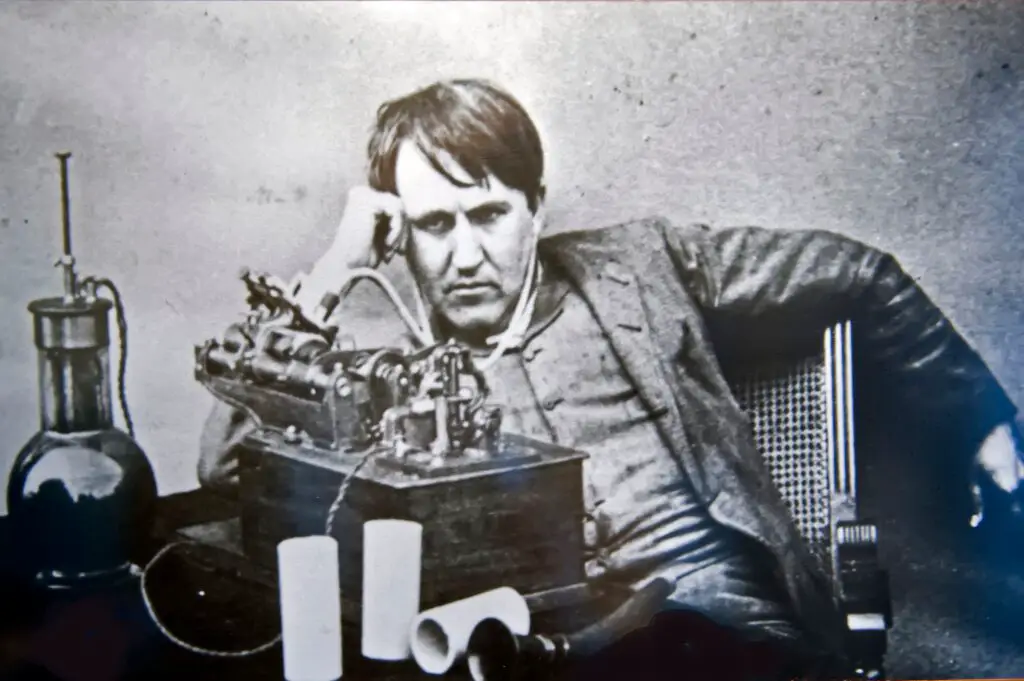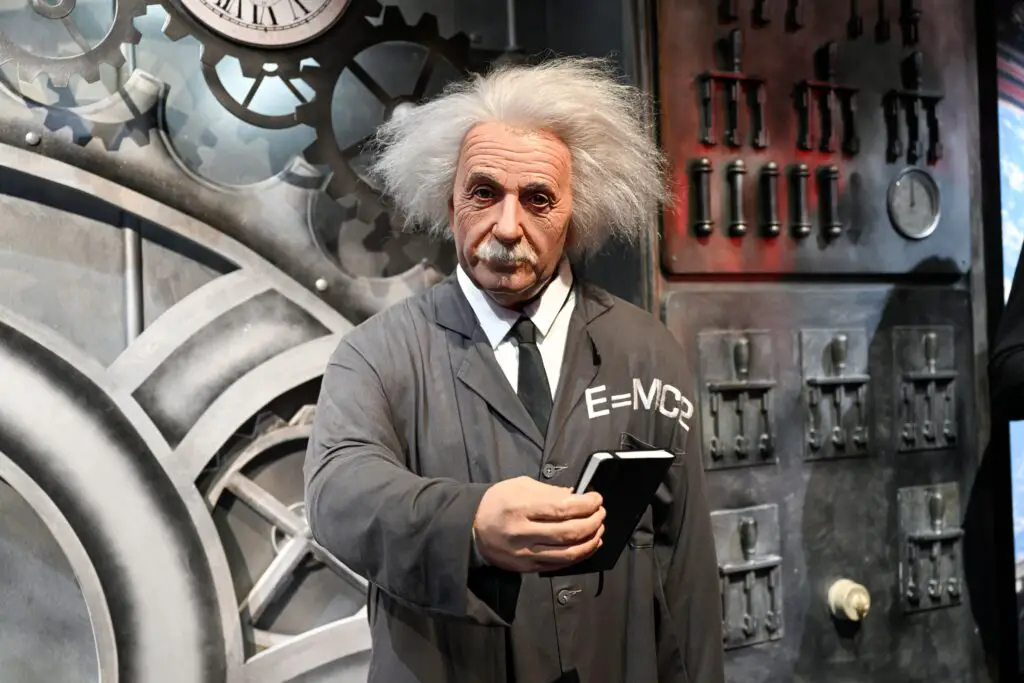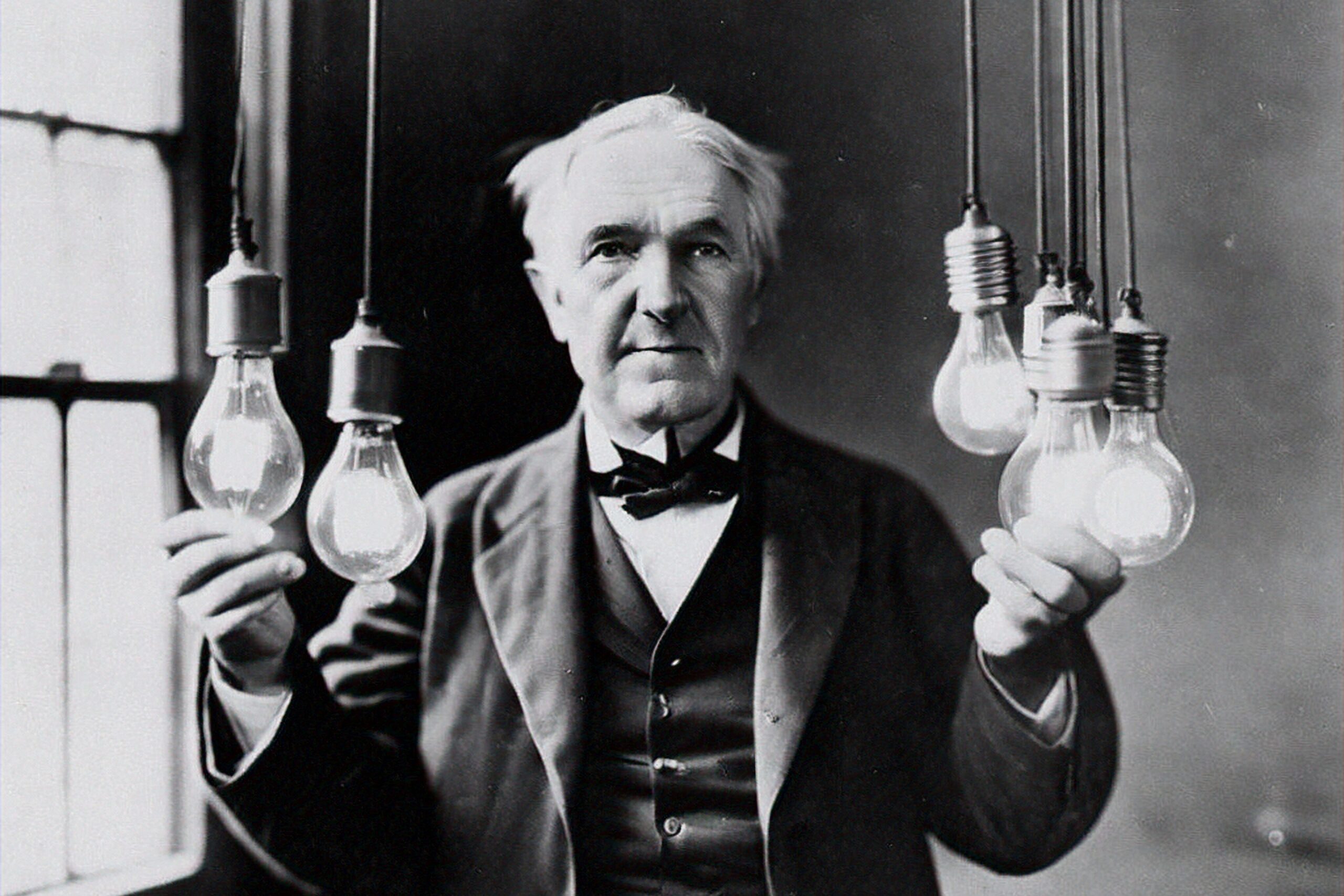1. Unconventional Thinking

One thing history’s greatest innovators share is a willingness to think outside the box. They’re not afraid to explore ideas that seem too out there or too impractical for the average person. They’re constantly pushing boundaries, looking for ways to challenge norms, and questioning the status quo. Whether it’s Steve Jobs reimagining the personal computer or Nikola Tesla envisioning wireless communication, they dared to dream big, even when others saw their ideas as impossible says Inc.com.
You might be surprised to know that you have this same capacity to think unconventionally. It’s easy to get stuck in routines and traditional ways of doing things, but if you’ve ever caught yourself looking for new solutions when faced with a problem, you’ve been tapping into that same spirit of innovation. Don’t discount those out-of-the-box ideas—sometimes, they’re the ones that change everything.
2. Embracing Failure

Many of history’s great innovators didn’t just experience failure—they thrived on it. They saw failure as an opportunity to learn and improve, not a reason to quit. Take Thomas Edison, for example, who famously went through over 1,000 unsuccessful attempts before perfecting the light bulb. He didn’t see his trials as failures, but as stepping stones toward success. It’s this resilience that’s been a common thread among all the game-changers in history shares Forbes.
You might relate to this more than you think. If you’ve ever tried something new, stumbled a few times, but kept going because you knew it was worth it, you’re tapping into that same mindset. Failure isn’t the end of the road—it’s the beginning of the next great discovery, just like it was for the innovators who came before us.
3. A Passion for Learning

Innovators are voracious learners. They’re constantly seeking out new knowledge and are never satisfied with the status quo. Leonardo da Vinci, for instance, wasn’t just an artist; he was a scientist, engineer, and inventor. His curiosity about the world around him knew no limits. This desire to learn and explore was the driving force behind much of his groundbreaking work adds CEPR.
If you love learning, even in small ways, you’re on the same path as these great minds. Whether it’s reading a book, watching a documentary, or diving into an online course, that thirst for knowledge is what fuels creativity and innovation. The more you know, the more ideas you can connect, leading to unexpected breakthroughs.
4. Attention to Detail

Great innovators have an almost obsessive attention to detail. Steve Jobs, for instance, was known for his relentless focus on design, making sure every little detail of Apple products was perfect. It wasn’t just about functionality; it was about creating an experience. This level of precision in both thought and execution allowed them to create products and ideas that were not only useful but beautiful and intuitive says Strategy+Business.
If you’re the type of person who notices the small things, you’re on the right track. Maybe you find yourself perfecting a project or taking time to polish something that others might overlook. That’s the mark of an innovator: the ability to spot the tiniest details that make a big difference in the end.
5. A Willingness to Take Risks

Taking risks is an essential trait of innovators. Without risk, there’s no reward. Think about someone like Elon Musk, who has invested billions of dollars into projects like SpaceX and Tesla, betting everything on his vision for the future. Many of these ventures seemed impossible at the time, but Musk believed in his ideas enough to take the leap, and look where it’s gotten him.
You might not be investing millions in a rocket ship, but that same willingness to take risks shows up in your life, too. Whether it’s trying a new career path, starting a passion project, or simply putting yourself out there in a new way, you’re demonstrating the same boldness that great innovators did. Innovation is born from the courage to take risks, no matter how big or small.
6. A Focus on the Bigger Picture

Innovators aren’t just thinking about the next small step—they’re envisioning a future. Albert Einstein, for example, wasn’t just a physicist; he was a visionary who redefined how we understand the universe. He didn’t just want to answer questions—he wanted to revolutionize entire fields of thought. Innovators like him are always looking at how their work fits into the grand scheme of things, thinking about long-term impact rather than immediate results.
Chances are, you’re doing this too. Maybe you’re already thinking about how the things you’re working on today will shape your future. You might be planning out your next big career move, or simply considering how your current actions align with your long-term goals. That visionary mindset is a key trait of the greatest innovators.
7. Persistence in the Face of Adversity

Innovation doesn’t come easy, and history’s greatest minds knew that. They encountered roadblocks, resistance, and even harsh criticism, but they didn’t back down. Henry Ford, for instance, faced multiple failures before he revolutionized the automotive industry with the Model T. His persistence led him to create one of the most successful businesses in the world, changing the face of transportation forever.
You probably have moments in your life when things don’t go as planned, but if you keep pushing forward, you’re demonstrating the same persistence that these great innovators showed. Whether it’s dealing with setbacks in a personal project or facing challenges at work, your ability to persevere is what will get you to the breakthrough moment.
8. An Intense Work Ethic

There’s no denying that innovators put in the hard work. They don’t rely on luck—they create their own success through discipline and dedication. Thomas Edison famously said, “Genius is one percent inspiration and ninety-nine percent perspiration.” He worked tirelessly, often for hours on end, to bring his inventions to life. His ability to dedicate himself to a cause, even when the odds were against him, is a trait shared by many of history’s great minds.
You probably have your own version of this work ethic. Maybe you juggle multiple projects or have a passion that you pour time and energy into, even when it’s tough. That dedication, that willingness to keep going even when the work is hard, is a sign that you have the same traits that innovators like Edison relied on.
9. An Ability to Inspire Others

Great innovators know how to rally people around their ideas. They can inspire others to believe in their vision, even when it’s hard to see how it could ever come to fruition. Oprah Winfrey, for example, built a media empire not just through her own talents but by inspiring others to pursue their passions and dreams. Her ability to connect with people on a personal level has been key to her success.
If you’ve ever found yourself encouraging others to follow their dreams or rallying a team around a shared goal, you’re already embodying this trait. Great innovators inspire those around them to believe in something bigger than themselves. Your influence, whether in a small circle or a large community, is a powerful tool for creating change.
10. A Constant Desire for Improvement

Innovators are never satisfied with “good enough.” They’re always striving to make things better. Whether it’s improving their products or refining their ideas, they’re focused on constant growth. For instance, Jeff Bezos started Amazon with a simple online bookstore, but he constantly sought ways to improve the experience for customers, eventually transforming it into the giant it is today.
If you’re someone who is always looking for ways to improve—whether it’s refining a skill, learning a new technique, or enhancing a process—you have that same drive. This desire to always be better, even in small ways, is a trait shared by the most successful and innovative people throughout history.
11. A Strong Sense of Purpose

Innovators are driven by a deep sense of purpose. They have a vision for how they want to make the world a better place, and that’s what keeps them going through challenges. For instance, Bill Gates was motivated not just by profit but by his desire to revolutionize the software industry and make technology accessible to everyone. His sense of purpose guided his every move, helping him achieve unimaginable success.
You might have your own sense of purpose, whether it’s related to your career or your personal life. If you’ve ever felt driven to make a difference in the world or to improve the lives of those around you, you’re living with the same sense of purpose that has fueled the world’s greatest innovators.
12. A Tendency to Collaborate

While innovators are often thought of as lone geniuses, many of history’s greatest minds succeeded because they worked with others. The Wright brothers, for example, were able to achieve powered flight because they collaborated and built on each other’s strengths. They knew that working together was essential to solving the challenges they faced.
In your own life, you might find that you collaborate with others in ways that lead to new ideas and creative solutions. Whether it’s brainstorming with coworkers or teaming up with a friend for a project, you’re tapping into that same spirit of collaboration that has propelled history’s innovators forward.
13. A Tendency to Challenge the Status Quo

History’s greatest innovators were never content with the way things were. They believed there was always a better way to do things, and they were willing to challenge the systems and traditions that stood in their way. Rosa Parks, for instance, made her stand on a bus not just for herself but for the entire civil rights movement, challenging a deeply ingrained system of injustice.
If you’ve ever questioned why things are the way they are and looked for ways to make improvements, you’re doing what innovators have done throughout history. Challenging the status quo is often the first step toward creating something new, and it’s a trait you likely carry with you every day.
